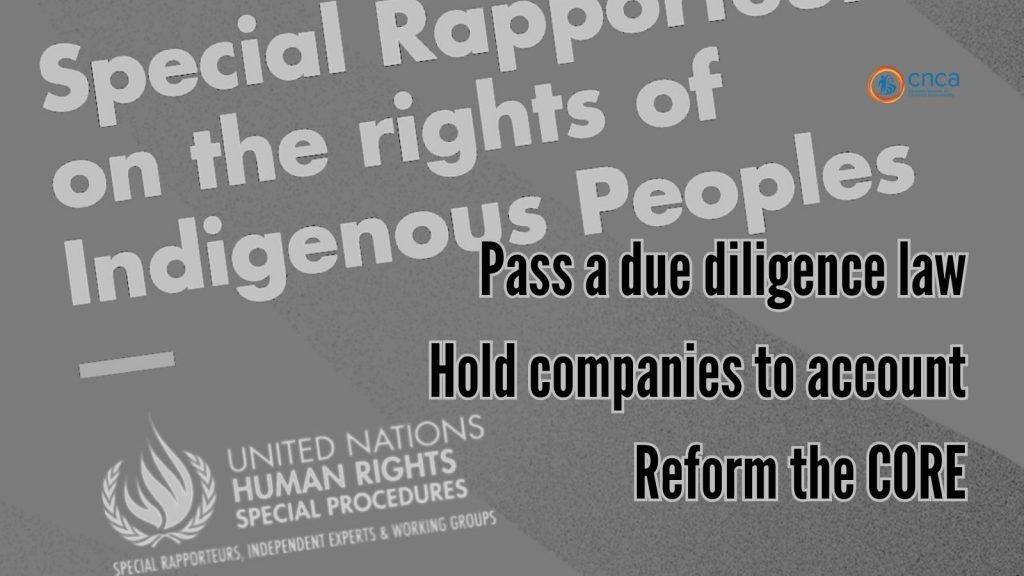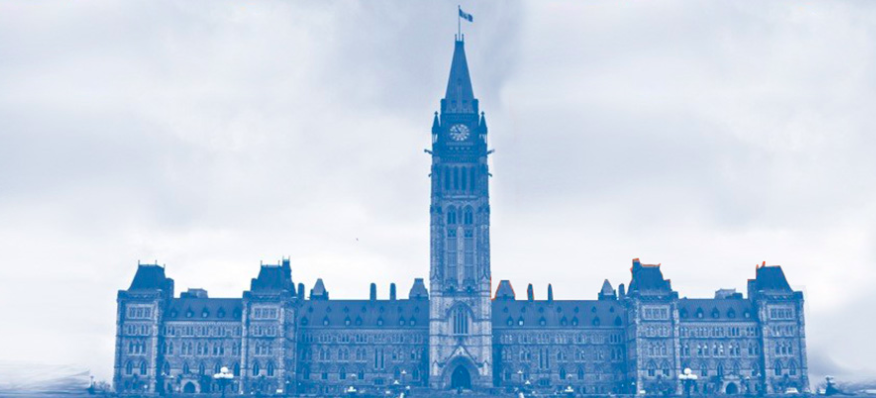Canada should take specific and concrete actions to ensure that the human rights of Indigenous Peoples in Canada and around the world are respected, notes a new report by United Nations Special Rapporteur on the rights of Indigenous Peoples, Mr. José Francisco Calí-Tzay, based on his visit to Canada in early March 2023.
The report calls attention to “deep-set, systemic and structural racism,” and highlights serious abuses of Indigenous Peoples’ human rights by Canadian transnational corporations.
Abuses abroad
“On several occasions, the Special Rapporteur, along with other mandate holders, has expressed concern regarding human rights abuses against Indigenous Peoples committed by Canadian companies operating abroad,” notes the report.
“Indigenous Peoples affected by overseas operations of Canadian businesses still face great challenges in accessing juridical remedies before Canadian courts,” wrote Mr. Calí-Tzay.
One problem, the report states, is that the Canadian Government “does not comprehensively regulate the activities of Canadian companies operating transnationally, on the assumption that this is primarily the role of the host State.” As the CNCA has noted repeatedly, voluntary measures that merely encourage corporations to respect human rights and the environment, simply don’t work.
Call for a mandatory due diligence law
The report reinforced the global trend for governments to pass laws that require their home-based transnational companies to prevent human rights and environmental harm throughout their global operations and supply chains. “Home States must require companies to conduct human rights due diligence to ensure respect for Indigenous Peoples rights in their supply chains, and adopt and enforce regulations in relation to the human rights impacts overseas of companies domiciled in home States,” said the report.
Over 50,000 people have signed a CNCA petition which was delivered to Members of the Canadian Parliament in April 2023, advocating mandatory human rights and environmental due diligence legislation.
Criticisms of the Ombudsperson for Responsible Enterprise (CORE)
The report addresses key shortcomings regarding the office of the Canadian Ombudsperson for Responsible Enterprise (CORE).
The Special Rapporteur had been informed that the CORE is “not independent from the Government of Canada, as it is situated within Global Affairs Canada and reports to the Minister of International Trade, Export Promotion, Small Business, and Economic Development, and its reports are not released until they have been reviewed by the Minister.”
And the report noted that the CORE has been criticized for lacking key safeguards, including:
- mechanisms to protect Indigenous Peoples who file complaints from reprisals;
- effective protocols to engage with Indigenous Peoples;
- policies to ensure gender-based analysis and cultural sensitivity procedures during investigations;
- powers to compel Canadian companies to produce documents or witnesses; and
- effective compensatory mechanisms.
The report also noted a key CORE weakness in that “the Ombudsperson can only make recommendations to the Government of Canada to impose consequences on businesses that do not respect human rights, including revocation of trade promotion and export credit financing.”
Key recommendations
The report recommends, amongst other things, that Canada should:
- “Recognize the extraterritorial human rights obligations of Canadian companies operating abroad and ensure that they are held accountable for human rights violations committed in other countries, including against Indigenous Peoples”;
- “Adopt human rights and environmental due diligence legislation to require companies to proactively prevent violations of human rights, including rights contained in the United Nations Declaration on the Rights of Indigenous Peoples”;
- “Establish mechanisms to ensure that government support to companies, including political and commercial support by embassies and financing through Export Development Canada, is conditional on respect for international human rights and environmental standards, including the Declaration”;
- “Reform the office of the Canadian Ombudsperson for Responsible Enterprise to ensure that it is fully independent, and strengthen its mandate by granting it full investigatory powers, establish effective safeguards to protect Indigenous petitioners from reprisals and create greater awareness of the mechanism”.
The CNCA is pleased to see that the United Nations Special Rapporteur on the rights of Indigenous Peoples has recognized many of the challenges Canada faces in holding Canadian corporations accountable for human rights abuse and environmental damage that continues to take place throughout their global operations and supply chains.
The CNCA advocates for Canada to enact binding measures that require Canadian companies to respect the rights of Indigenous Peoples around the world, and believes that the principle of free, prior and informed consent (FPIC) is key to the right to self-determination of Indigenous Peoples.
===
Read the full 2023 Report for Canada by the United Nations Special Rapporteur on the Rights of Indigenous Peoples.




